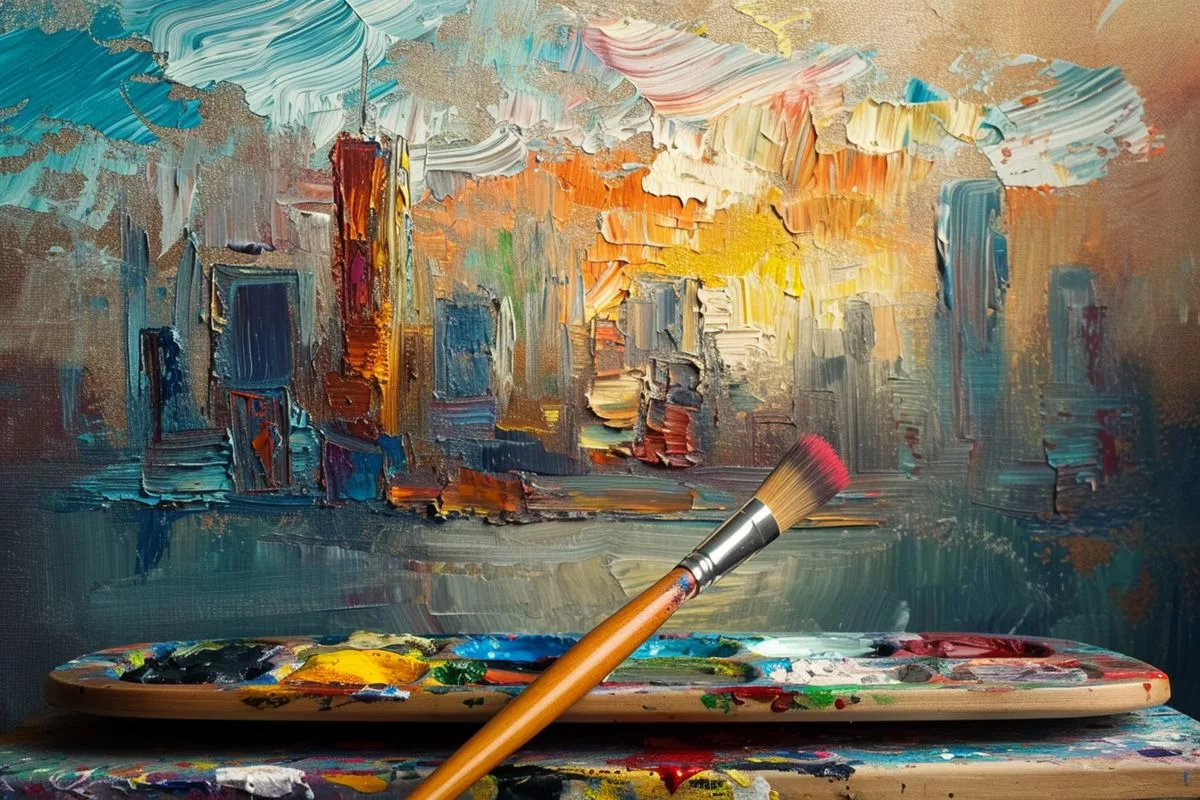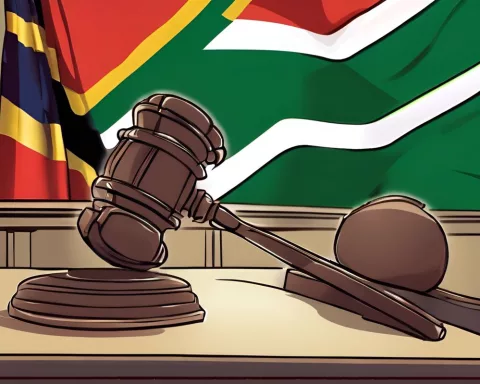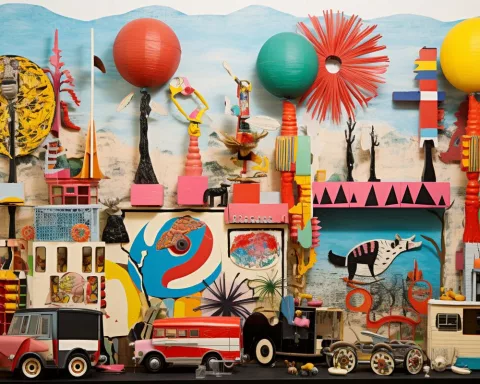In a recent speech at the funeral of Dr. Mbongeni Ngema, Minister N.G. Kodwa highlighted the importance of the arts and culture industry in South Africa, which contributes over 90 billion rand to the country’s GDP and accounts for 6 percent of all employment. He emphasized the need for recognizing and honoring artists while they are still alive and urged the government to take action to establish a fund for sustainable growth. The speech served as a powerful appeal for valuing artists and establishing systems for their sustainability.
The Importance of Arts and Culture
The creative economy contributes over 90 billion rand to South Africa’s GDP and accounts for 6 percent of all employment. Art and Culture hold immense potential for job creation, investment possibilities, and fostering cross-sector collaboration with industries like tourism and small business development.
Honoring Dr. Ngema’s Life and Contributions
The respected Minister N.G. Kodwa of the Department of Sport, Arts, and Culture recently presented an insightful oration at the funeral of the late Dr. Mbongeni Ngema. As a distinguished artist and stalwart of the liberation movement, Dr. Ngema’s contributions to the world of art were celebrated, as they reached far beyond his individual creative pursuits.
The funeral service for Dr. Ngema was held in the awe-inspiring Durban ICC. Minister Kodwa, during this solemn occasion, expressed deep sympathy to the grieving Ngema family on behalf of his department. Among those present were esteemed guests such as the Hon. Premier of the Kwa-Zulu Natal Province, Ms Dube-Ncube, MECs, Councillors, Clergy and Church Leadership.
Minister Kodwa lauded The Playhouse and the Ngema family for their spirited commemoration of Dr. Ngema’s life and impact. He acknowledged candid tributes about the artist and initiated meaningful discussions about how best to perpetuate his legacy.
The Importance of Arts and Culture
Underlining the need to recognize and honor artists while they are still alive, Minister Kodwa drew upon his recent visits to Paris and Russia. These countries have reportedly augmented their budgetary allocations for Arts and Culture, acknowledging the sector’s pivotal role in contributing to the GDP, nation-building, and fostering social harmony.
Drawing an analogy with the South African scenario, Minister Kodwa pointed out that the creative economy makes a significant contribution to the country’s GDP, job market, and transformational agenda. Research from the South African Cultural Observatory reveals that the creative economy contributes over 90 billion rand to South Africa’s GDP and accounts for 6 percent of all employment. The research further indicates that around 87 percent of creative and cultural industry professions are occupied by Black South Africans, and women hold approximately 43 percent of jobs in this sector.
Comparisons and Potential of Arts and Culture
In an international context, South Africa’s contribution of Arts and Culture to its GDP is comparable to BRICS nations, as well as countries like the United States and the United Kingdom. These countries harness the power of Art and Culture more effectively, enabling a significant role in economic growth.
Art and Culture hold immense potential for job creation, investment possibilities, and fostering cross-sector collaboration with industries like tourism and small business development. For instance, in the United States alone, the sector contributes about 1.02 trillion US dollars to the country’s GDP, supporting 4.9 million jobs.
The Need for Government Intervention
Minister Kodwa underscored the need for governmental action in times of crisis in the creative industry. He urged Industry Principals to come forward and discuss with his Department the role of the government in establishing a fund for sustainable growth. He suggested drawing lessons from international practices, such as screening and imposing levies on international artists by Unions and Home Affairs, which could contribute to industry funding.
The Minister expressed his belief that these endeavors could establish a robust policy for managing access by international artists visiting South Africa for work. If adopted, these measures would not only ensure the industry’s durability but also preserve Dr. Ngema’s rich legacy.
Summing Up
In conclusion, Minister Kodwa’s speech served as a powerful appeal for recognizing and valuing artists, acknowledging their economic contributions, and establishing systems for their sustainability. It emphasized the importance of Arts and Culture in South Africa’s societal tapestry and the need for a greater investment and strategic planning in the sector.
1. What is the contribution of the arts and culture industry to South Africa’s GDP?
The arts and culture industry contributes over 90 billion rand to South Africa’s GDP, which accounts for 6 percent of all employment.
2. Who is Dr. Mbongeni Ngema and what is his legacy?
Dr. Mbongeni Ngema is a distinguished artist and stalwart of the liberation movement in South Africa. His contributions to the world of art were celebrated, as they reached far beyond his individual creative pursuits. Minister N.G. Kodwa emphasized the need for recognizing and honoring artists while they are still alive, and urged the government to take action to establish a fund for sustainable growth to preserve Dr. Ngema’s rich legacy.
3. What is the importance of arts and culture in South Africa?
Arts and Culture hold immense potential for job creation, investment possibilities, and fostering cross-sector collaboration with industries like tourism and small business development. Research from the South African Cultural Observatory reveals that the creative economy contributes over 90 billion rand to South Africa’s GDP and accounts for 6 percent of all employment. It also shows that around 87 percent of creative and cultural industry professions are occupied by Black South Africans, and women hold approximately 43 percent of jobs in this sector.
4. How does South Africa’s contribution to the arts and culture industry compare to other countries?
South Africa’s contribution to the arts and culture industry is comparable to BRICS nations, as well as countries like the United States and the United Kingdom. These countries harness the power of Art and Culture more effectively, enabling a significant role in economic growth.
5. What is the role of the government in the arts and culture industry?
Minister Kodwa underscored the need for governmental action in times of crisis in the creative industry. He urged Industry Principals to come forward and discuss with his Department the role of the government in establishing a fund for sustainable growth. He suggested drawing lessons from international practices, such as screening and imposing levies on international artists by Unions and Home Affairs, which could contribute to industry funding.
6. What was the main message of Minister Kodwa’s speech at Dr. Ngema’s funeral?
Minister Kodwa’s speech served as a powerful appeal for recognizing and valuing artists, acknowledging their economic contributions, and establishing systems for their sustainability. It emphasized the importance of Arts and Culture in South Africa’s societal tapestry and the need for a greater investment and strategic planning in the sector.












